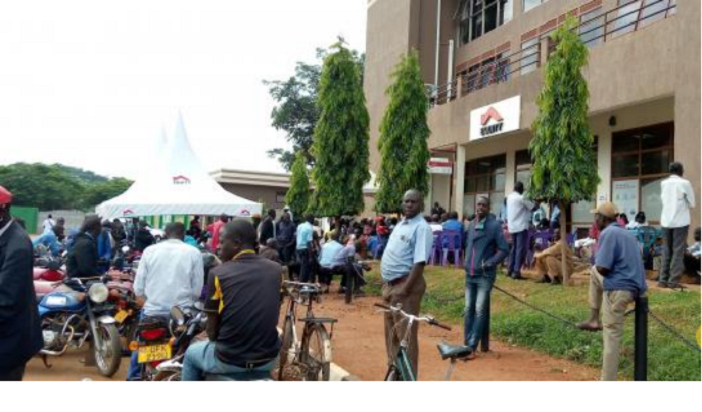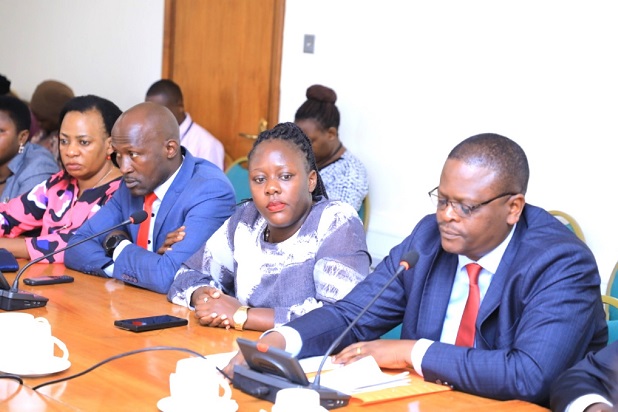Claimants camp at Equity Bank Lira Branch on Wednesday morning
War claimants have jammed different banks in Lira City to process their livestock compensation.
The claimants mostly elderly women from nine districts across the Lango sub-region have pitched camp at the various banks such as Post Bank, Equity, and KCB as they wait for their turn to check their accounts for the compensation money.
Others have opted to stay around the banks and spend the night in the cold in case they fail in the first attempt. This comes three months after President Yoweri Kaguta Museveni launched compensation payments for people who lost their livestock in Acholi, Lango, and Teso sub-regions with a start-up pay kit of Shillings 50Billion.
Jenty Akedi, 75, a resident of Alebtong district has spent one week at the bank. She says the money her grandson gave her for upkeep is finished yet she has not been able to check her account. Akedi wondered why her colleagues with whom they registered together are receiving money.
Jasper Ajwika Okello, a resident of Boroboro East Ward in Lira City East Division blames the delay on inadequate manpower at the banks, which he says slows down the entire process.
The government has verified 42,000 claimants from the Lango sub-region for compensation. However, the authorities say that the money was sent to the accounts of most of the claimants but some of them were dormant.
Ben Otim Ogwete, the Lira Chief Administrative officer, says that money sent to dormant accounts has bounced back. “The unfortunate thing is this; there were many accounts which were inactive and much as we have been telling them that they should go and check and reactivate their accounts, some of the people never reactivated their accounts so the money came and bounced,” he said.
Similarly, Samuel Opio Acuti, the Kole North Member of Parliament blames some opinion and local leaders for misleading the claimants and urging them not to reactivate their bank accounts.
“I repeatedly talked on-air encouraging those whose names appeared to activate their bank accounts and also get letters of administration where applicable but several opinion leaders urged them to disregard my statements, insinuating that the payment would never materialize. As a result, some of the claimants ignored my call and now payments have now been made but they have missed because they were misled and yet some would have received up to 10m if they had heeded the call.”
Stephen Luwaga, the Post Bank Manager of the Lira Branch explains that the bank closed so many accounts last year including those of the claimants because they were dormant. He, however, quickly noted that some claimants managed to reactivate their accounts in time and will receive the money as and when it comes.
Some of the claimants like Akedi and Okello have to wait longer because they have to reactivate their bank accounts, depending on how long the accounts have been dormant. Section 119 of the Financial Institutions Act (FIA) 2004 and Section 83 of the Micro Finance Deposit-taking Institutions (MDI) Act, 2003 define a dormant account as one that has not had any activity for a period of 2 years in a Supervised financial institution.
After two years of inactivity, the financial institutions transfer these accounts and register them as dormant. If the dormant account has been on the register for three years, the financial institution advertises in print media calling upon account holders to notify it to transfer it out of the register.
Unclaimed balances from the time of the advertisement are transferred to the Bank of Uganda. Meanwhile, the Bank of Uganda refunds any unclaimed balances to depositors of dormant accounts and it shall refund any unclaimed balances to the depositors of those balances on request from the depositor or their legal representative if the depositor is dead.
-URN





